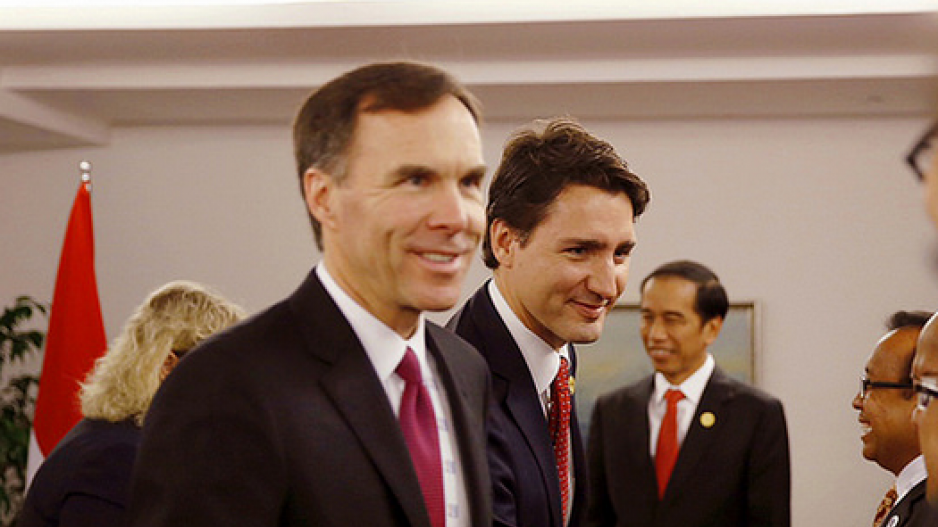Canada’s fiscal outlook is somewhat less optimistic than the one presented in Budget 2015 earlier this year by the then-governing federal Conservative Party, according to Finance Minister Bill Morneau.
The projected budgetary balance has been revised downward by about $6 billion per year over the next few years. Deficits of $3 billion in 2015-16 and $3.9 billion in 2016-17 are forecast, and further deficits are expected in the couple years after that. By 2019-20, a surplus of $1.7 billion is forecast, followed by a $6.6 billion surplus in 2020-21.
“The road ahead is challenging, but it is also one of opportunity,” Morneau said. “Canadians have given our government a strong mandate to take a new approach to securing our prosperity, and I intend to use the fiscal and budgeting tools at my disposal to do just that.
“We must also invest—in our economy, our communities, and in Canadians themselves. That includes transformative investments in infrastructure and a new plan for a strong middle class.”
As in the Parliamentary Budget Office’s outlook released last week, the latest projections do not take into account policy changes from the new government’s platform.
Sherry Cooper, chief economist at Dominion Lending Centres, said austerity measures that began in the 1990s have meant the country’s balance sheet is in good shape now, according to Cooper.
“Our structural deficit has been obliterated, helped by the secular decline in interest rates,” she said.
“Moreover, our debt-to-GDP ratio is barely above 30%, at the bottom of the Organization for Economic Cooperation and Development (OECD) countries performance.”
Cooper pointed out Morneau said over the next three years, the annual budget deficit would not exceed $10 billion.
“The proposed deficit of $10 billion is only 0.5% of Canadian GDP—an extremely low number by global standards, well-below the level in the U.S. of about 2.4%.”




